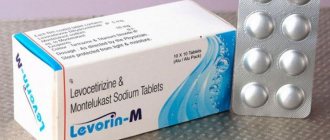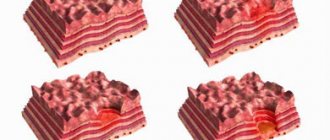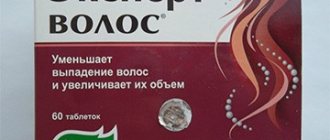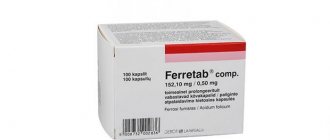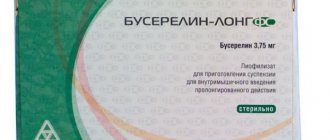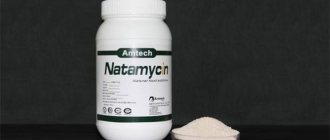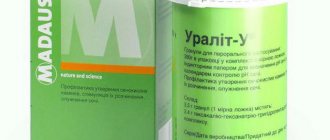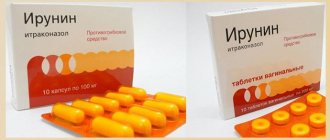In the article we will look at the instructions for use and reviews of Propitsil.
This medication, being a modern drug, shows a high degree of effectiveness in the treatment of a number of pathological conditions of the thyroid gland. The drug is able to actively inhibit the process of excessive production of thyroid hormones, as well as reduce their negative effects against the background of symptoms of toxic goiter, autoimmune thyroiditis and hyperthyroidism.
"Propicil" is often prescribed as a preparatory step before surgery on the thyroid gland. The drug is considered potent, it has a powerful antithyroid effect on the body and requires a doctor’s prescription, as well as a clear dosage regimen and course duration. An important stage of treatment with Propicil is regular monitoring of clinical blood parameters, as well as checking the balance of hormones in the body. Such control will help to avoid intoxication of the body due to an overdose.
The instructions supplied with the drug contain detailed information about its properties, composition, adverse reactions, indications and contraindications. Reviews about “Propitsil” are found in large numbers.
Pharmacodynamics and pharmacokinetics
Pharmacodynamics
The drug blocks thyroid peroxidase and suppresses the process of converting ionized iodine into elemental iodine (the active form). Its extrathyroidal action includes the process of inhibiting the transformation of tetraiodothyronine into triiodothyronine . Propicil weakens the symptoms of thyrotoxicosis and reduces the size of the thyroid gland , the growth of which is caused by a decrease in the concentration of its hormones in the blood in response to an increase in the production of -stimulating hormone by the .
Pharmacokinetics
The drug is quickly absorbed from the gastrointestinal tract . Metabolized in the liver. It is excreted in the urine during the day, partially unchanged.
Side effects
- Sometimes: skin rash, urticaria, stomach pain, arthralgia (without symptoms of joint inflammation), goiter formation in newborns;
- Rarely: agranulocytosis, accompanied by septic complications;
- Very rare (mainly when using high doses of propylthiouracil): liver damage (transient cholestasis, hepatocellular necrosis), allergic reactions, drug fever, thrombocytopenia, lymphadenopathy;
- Selected cases: neuromuscular disorders, polyarthritis, impaired sense of smell and taste, vasculitis, lupus-like syndrome, hearing loss, periarteritis nodosa, gastrointestinal disorders (nausea, vomiting), dizziness, impaired erythropoiesis, hemolysis, positive Coombs reactions, interstitial pneumonia , asthma, peripheral edema, alopecia.
During therapy with Propicil, an enlargement of the thyroid gland is possible.
If liver failure, agranulocytosis, or vasculitis (conditions that pose a potential threat to the patient's life) are diagnosed, further therapy should be carried out under close medical supervision.
There were no cases of acute intoxication with propylthiouracil.
In case of chronic overdose, goiter and hypothyroidism develop, the symptoms of which depend on the degree of decrease in thyroid function, caused by the specific action of the thyreostatic agent. There are no special measures/measures for the treatment of this condition. Gastric lavage and endoscopic removal of tablet residues are ineffective, which is associated with rapid absorption of the active substance.
After discontinuation of the drug, as a rule, restoration of thyroid function occurs spontaneously.
Propicil, instructions for use (Method and dosage)
Take orally, swallow whole, with water, every 7–8 hours. The initial therapeutic dose for adults and children over 12 years of age is 75–100 mg per day (1.5–2 tablets). Maintenance dose: 25–150 mg per day (0.5–3 tablets). In severe cases and after iodine loading, the daily dose should be increased to 300–600 mg, which is taken in 4-6 doses.
Newborns with thyrotoxicosis are prescribed the drug at a dosage of 5–10 mg/kg/day, divided into 3 doses. If there is no effect, the dose is increased by 1.5–2 times. Maintenance dosage: 3–4 mg/kg/day. Children 6–10 years old are prescribed 50–150 mg per day, the maintenance dose is 25–50 mg per day. The duration of treatment for thyrotoxicosis varies widely and can last 1.5–2 years. In the process of preparing a patient for radiation exposure or surgery, the dosage and duration of taking Propicil is determined individually.
In simple language about the use of the drug Propicil
Propicil refers to drugs that regulate the functioning of the thyroid gland.
You cannot take this drug on your own, as it is not suitable for all types of diseases.
The medication contains propylthiouracil, an antithyroid component, as well as excipients: lactose, corn and gelatinized starch, silicon dioxide, povidone and magnesium stearate.
Mechanism of action
The pharmacological effect of Propicil tablets is to suppress the function of the thyroid gland by regulating complex relationships in the human body.
After use, the medication is absorbed through the digestive tract for a short time. Over the next hour and a half, the medicine is half eliminated by the kidneys.
It is easy to guess how immediate the therapeutic effect the medication provides.
After absorption, the active substance blocks the thyroid enzyme - peroxidase, which is actively involved in the formation of iodine.
As a result of slow suppression of the synthesis of iodinated thyroglobulin, the production of thyroid hormones is inhibited.
Propicyl prevents the formation of iodotyrosine, which leads to the suppression of T3 and T4.
The medicine affects the functioning of the pituitary gland, causing an increase in TSH. As a result, the likelihood of a goitrogenic effect remains.
Indications for use
Propicil instructions for use are recommended for use for the following indications:
As practice shows, young women more often suffer from diffuse toxic goiter. At the same time, smoking increases the likelihood of developing pathology.
Thyrotoxicosis is a symptom complex of pathological processes occurring in the thyroid gland.
Propicil tablets in this case are necessary to eliminate the symptoms of disorders, and not the true cause.
Directions for use: dosage and regimen
The medication is taken orally with a comfortable amount of water. It is advisable to drink it at strictly prescribed times.
In accordance with individual indicators, the medicine is used with a break of 6-8 hours. The dose of the medication depends on the nature of the pathological process, age and characteristics of the functioning of the body:
for thyrotoxicosis, toxic adenoma of the thyroid gland and diffuse toxic goiter if treatment is preceded by the body’s interaction with iodine to maintain the condition
| up to 2 tablets (75-100 mg) are prescribed; |
| then the starting dose is increased to 600 mg; |
| no more than 3 tablets are recommended (from 25 to 150 mg). |
In childhood
For children 10 years of age and older, the medication is recommended to be used in adult dosage. For younger children, the volume of the drug should be reduced.
https://www.youtube.com/watch?v=TSXaZ_GsDJo
From 6 years of age, it is recommended to use no more than 150 mg per day for treatment, which is 3 capsules. Subsequently, the volume of medication is reduced to 50 mg.
Newborns with hyperthyroidism should take Propicil in a dose appropriate to their body weight.
It is calculated using the formula 1 kg * 5-10 mg.
The resulting volume is divided into 3 parts and given every 8 hours.
If there is no response to treatment, then the volume of medication is increased by 1.5-2 times.
During pregnancy and lactation
Propycil is not contraindicated during pregnancy. On the contrary, refusal to use the medication when indicated can lead to miscarriage or stillbirth.
Often women manage to conceive a child during treatment for thyrotoxicosis.
If you become pregnant, you need to continue taking the medicine. It is important to immediately consult a doctor to adjust your medication regimen.
When treating pregnant women, the minimum effective drug dosage is selected so that the level of thyroid hormones is at the upper limit of normal, and thyrotropin levels are below standard.
If it is necessary to treat thyrotoxicosis during breastfeeding, the preferred drug would be Propicil.
This medication, unlike its analogues, has a minimal concentration in breast milk. Despite this, it is necessary to monitor the baby’s condition to avoid the development of hypothyroidism.
In cases of liver and kidney dysfunction
Based on medical statistics and long-term practice of using Propicil, for kidney diseases the medicine does not require dose adjustment.
For liver pathologies, tablets can be used if there are no contraindications.
Adverse reactions
Despite the good characteristics, reviews, and long experience of use, Propycil can cause negative effects and side effects:
- agranulocytosis, accompanied by septic complications;
- goiter formation;
- allergy;
- arthralgia;
- neuromuscular disorders;
- dyspepsia;
- dizziness;
- enlargement of the thyroid gland.
Overdose
When using the drug in large doses, toxic liver damage is observed, the likelihood of allergic reactions increases, and drug fever may develop.
Regularly exceeding the volume of medication leads to the formation of goiter with symptoms of hypothyroidism.
For this reason, the patient should be informed of possible manifestations (malaise, damage to the mucous membranes of the oral cavity, fever).
Interactions with drugs
The effectiveness of the medication decreases with the simultaneous use of iodine-based drugs, as well as after X-rays.
Propicil affects the pharmacological action of propranolol and coumarin derivatives.
For this reason, it is necessary to adjust the dose of the latter in order to avoid a lack of the drug in the body.
Treatment based on the “suppress and replace” principle
Due to the fact that Propicil gradually inhibits the functioning of the thyroid gland, over time the patient requires the use of substitutes for substances secreted by this organ.
In such situations, a treatment called the “block and replace” principle is carried out.
We recommend you learn: 10 pros and cons of taking Livial during menopause
Propicil is prescribed in a higher dose and at the same time thyroxine preparations are prescribed: Eutirox, L-Thyroxine.
Analogs: are there better substitutes?
There are different analogues of Propicil, which may be the same or different in composition. However, you can use an alternative remedy only in consultation with your doctor.
You can replace the medication with: Tyrozol, Mercazolil, Thiamazol or something else.
The drug Propicil is considered a safe, effective and convenient drug that has a minimum of adverse reactions and contraindications.
The tablets can even be used to treat newborns, pregnant women and nursing mothers. This medication is considered preferable in its group among analogues.
If you choose between Propicil or Tyrozol, which is better, then you should definitely give preference to the first medication.
The disadvantages of the drug include the high cost and the need to constantly replenish the dose in the body.
Terms of sale and storage
Propycil refers to prescription drugs. To purchase the drug, you must not only see a doctor, but also undergo an examination and make sure that the treatment is really necessary.
The tablets should be stored in a dark place at room temperature. Shelf life is 5 years from the date of production.
It is not recommended to use the medicine after the prescribed time has passed, as its effect on the body can be unpredictable.
Source: https://EndokrinnayaSistema.ru/lekarstva/propicil-instrukciya-po-primeneniyu.html
Propycil during pregnancy
Treatment with Propicil during pregnancy should be carried out under the strict supervision of a specialist ( thyrotropin should be below normal, thyroid hormone levels should be at the upper limit of normal). In order to prevent miscarriage and the development of hypothyroidism and goiter in the fetus, the dosage of Propicil should be as low as possible. With the development of diffuse toxic goiter during pregnancy, Propicil is used as a monotherapy drug. During lactation, Propicil is the drug of choice. Follow-up of the child is necessary to ensure early detection of cases of hypothyroidism .
Contraindications
- Lactose intolerance, lactase deficiency, glucose-galactose malabsorption;
- Hypothyroidism;
- Leukopenia;
- Chronic active hepatitis;
- Severe adverse reactions during previous therapy with propylthiouracil (severe liver failure, agranulocytosis);
- Individual hypersensitivity.
During pregnancy, therapy is permitted under strict medical supervision after careful assessment of the potential benefits to the mother and possible risks to the fetus. Propicil is taken in the lowest dose to avoid miscarriage and the development of goiter and/or hypothyroidism in the fetus.
When breastfeeding, Propycil is the drug of choice, since in breast milk its concentration is 1/10 of the content of propylthiouracil in the blood serum of a nursing woman. In some cases, a newborn may develop hypothyroidism, so medical supervision is necessary.
Reviews of Propitsil
Reviews of the drug from most patients on the forums are favorable. However, many patients have questions and requests for advice: “Propicil or Tyrozol, which is better”? Some patients even claim that, based on their personal experience of use, Tyrozol is better than Propicil. This is not entirely correct. Both drugs ( Tirozol , Propicil) are thyrostatics and have a similar mechanism of action and spectrum of use. But Tyrozol , unlike Propicil, is not prescribed during pregnancy and lactation. According to doctors, when taking Propicil, the effect occurs faster, but Tyrosol causes a more stable and long-term remission, and agranulocytosis develops less frequently. When choosing between these drugs, you should proceed from individual characteristics. In addition, Tyrosol is often prescribed if the patient is allergic to Propicil.
special instructions
The development of agranulocytosis can occur almost unpredictably and rapidly (within several hours). The patient must be informed about the clinical symptoms of the disease (malaise, fever, stomatitis, tonsillary tonsillitis) and, if they appear, have a blood picture examined.
Before starting therapy, a complete blood test should be done, and during treatment, the functional state of the thyroid gland (concentration of thyroid hormones and/or TSH in the blood) should be monitored.
When treated with too high doses of propylthiouracil, an existing goiter may enlarge, which in the case of intrathoracic or retrothoracic goiter can lead to compression of anatomical structures in the mediastinum.
A pathological change in the number of blood cells and an increase in transaminase activity is an indicator for the use of Propicil only under strict medical supervision.
Overdose
If the dosage of the drug is significantly exceeded, the likelihood of goiter growth, as well as thyroid tissue, increases.
Compression of structures located in the mediastinum, that is, in the esophagus and trachea, can lead to difficulty breathing and swallowing, as well as a deterioration in the patient’s general well-being.
This is confirmed by reviews of the side effects of Propicil.
Do not exceed the dosage prescribed by your doctor. Even in the absence of signs of acute poisoning, regular overdoses due to individual intolerance to the drug can lead to such serious consequences as hyperthyroidism and goiter. These manifestations are accompanied by negative symptoms of varying severity.
Below are reviews of Propitsil.
Indications
Preparations based on propylthiouracil as an active component are prescribed for the treatment of the following pathological processes in the endocrine system:
- Thyroid adenoma caused by intoxication.
- Nodular goiter of diffuse type, caused by intoxication.
"Propicil" is included in the preparatory stage before carrying out the following medical procedures:
- Radioiodine therapy.
- Resection of the thyroid gland - both partial and complete.
Drug interactions
Block-and-replace therapy in combination with levothyroxine sodium requires an increase in the dose of propylthiouracil.
The thyreostatic effect of Propicil may be reduced by simultaneous or previous use of iodine-containing agents or radiocontrast agents.
Additional dosage adjustments of coumarin derivatives and propranolol may be required since propylthiouracil may interfere with the effect of their free active fractions.
Myelotoxic drugs increase the hematotoxicity of Propicil.
Propycyl
Active substance:
Propylthiouracil*
Pharmgroup:
Thyroid hormones, their analogs and antagonists (including antithyroid drugs)
Analogs for the active substance:No data on synonyms | Application area:Hyperplasia of the thyroid gland Hyperthyroid state Hyperthyroidism Graves' disease Thyroid dysfunction Diffuse thyrotoxic goiter Diffuse thyrotoxic goiter Diffuse toxic goiter Diffuse toxic goiter Toxic diffuse goiter Latent thyrotoxicosis Parry's disease Increased thyroid function Thyrotoxicosis Thyrotoxic reaction Toxic diffuse goiter Toxic goiter Enlarged thyroid gland with symptoms of hyperthyroidism The Yod-Basedow phenomenon Flayani disease Von Basedow's disease |
Adverse reactions
According to reviews of Propicil, if the doctor's instructions regarding dosage and duration of administration are strictly followed, the drug is well tolerated by patients and does not lead to the development of adverse reactions. However, against the background of increased sensitivity to the components of the drug, changes in clinical indicators of blood composition are possible, namely the appearance of signs of agranulocytosis. This complication is associated with complications of a septic nature. Some patients report the following undesirable reactions while taking Propicil:
- Skin rash.
- Hives.
- Arthralgia without significant inflammation of the joints.
- The appearance of goiter, characteristic of patients in childhood.
You should read reviews about the side effects of Propicil in advance.
Somewhat less frequently recorded manifestations of a negative reaction to the drug are:
- Alopecia.
- Fever.
- Swelling in the periphery.
- Thrombocytopenia.
- Disorders of neuromuscular connections.
- Nausea and urge to vomit.
- Periarteritis of the nodular type.
